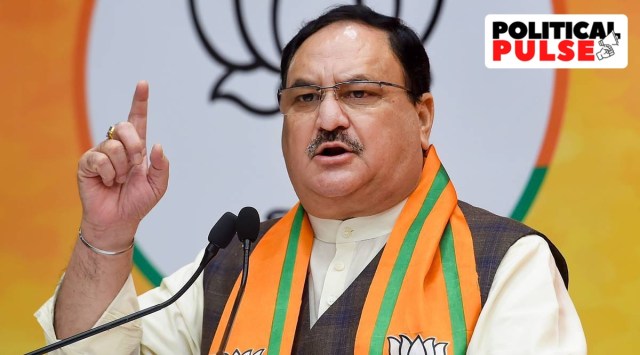BJP pushes ahead with UCC but yet to account for Northeast allies’ opposition
Parties such as the NDPP in Nagaland, NPP in Meghalaya, and MNF in Mizoram have opposed Uniform Civil Code saying it will affect the customary practices and laws followed by tribes in the region
 BJP president J P Nadda. (File)
BJP president J P Nadda. (File)
As it tries to push for the Uniform Civil Code (UCC), the BJP is likely to find it difficult to garner support on the issue from its allies in the Northeast who have strongly come out against it.
These parties include the National Democratic Progressive Party (NDPP) that leads the coalition that the BJP in Nagaland, the National People’s Party (NPP) that leads the alliance in Meghalaya, and the Mizo National Front (MNF) that is not in partnership with the BJP in Mizoram but is also part of the larger National Democratic Alliance (NDA).
The opposition stems primarily from the fact that the parties are all based in tribal-majority states that enjoy special provisions for the practice of customary laws. Historically too, there has been resistance against threats to customary practices. After the 22nd Law Commission invited suggestions regarding the UCC last month, and amid all signs that the UCC is next on the BJP’s agenda, there has been pushback from multiple quarters in Nagaland where more than 86% of the population belongs to Scheduled Tribe (ST) communities.
Multiple tribal bodies and associations have expressed their opposition to the UCC and highlighted Article 371A of the Constitution that speaks of the protection of Naga laws. It reads, “No act of Parliament in respect of religious or social practices of the Nagas; Naga customary law and procedure; administration of civil and criminal justice involving decisions according to Naga customary law; ownership and transfer of land and its resources, shall apply to the State of Nagaland unless the Legislative Assembly of Nagaland by a resolution so decides.”
On Thursday, the NDPP declared its opposition to the implementation of the UCC stating that it was a party “whose very ideology is to protect the rights, customs and traditions of our people”. In an official statement, the party also urged the government of Nagaland that when its opinion is sought on the matter, “we do not waiver from our commitment to the Naga people”.
In its statement, the party suggested that the implementation of the UCC could derail the ongoing peace process in the state. Indicating that the negotiations towards a Naga political solution were “at a critical juncture” and that the Naga people were looking forward to permanent peace through a final settlement, the statement said that a new law would “have a deep impact upon the personal laws of the people” and “create further uncertainty and has the serious potential to threaten the peaceful environment”.
Apart from this, the party also underlined that several sections in Naga society were yet to “completely integrate emotionally” with the Indian Union and still consider the practices, cultures, and beliefs of the “mainland” as “strange and alien”.
On Friday, Meghalaya Chief Minister and NPP leader Conrad Sangma said his party believes that UCC would go against the idea of India’s diversity. Apart from leading the government in Meghalaya, the NPP also has MLAs in Nagaland and Manipur.
“From a basic concept point of view, we are a matrilineal society for example. That is what our strength has been, that is what our culture has been. That cannot be changed for us. As a political party, we realize that the entire North East, for that matter of fact, has a unique culture and unique ways of our society. Hence we would want that to remain and we would not want that to be touched,” he said.
Meanwhile, the Khasi Hills Autonomous District Council — an autonomous body under the Sixth Schedule of the Constitution — passed a resolution last week to urge the union government not to adopt the UCC citing the need to protect customary practices of land ownership, the matrilineal system in Khasi society and the culture of traditional heads.
Even before the current push for the UCC, the Mizoram government led by MNF took a stand against the UCC, with the state Assembly passing a resolution against it in February itself. While introducing the resolution, Home Minister Lalchamliana referred to Article 371G of the Constitution that provides similar protection to Mizo customary law and social practices as Article 371A in the case of Nagaland.



- 01
- 02
- 03
- 04
- 05




























